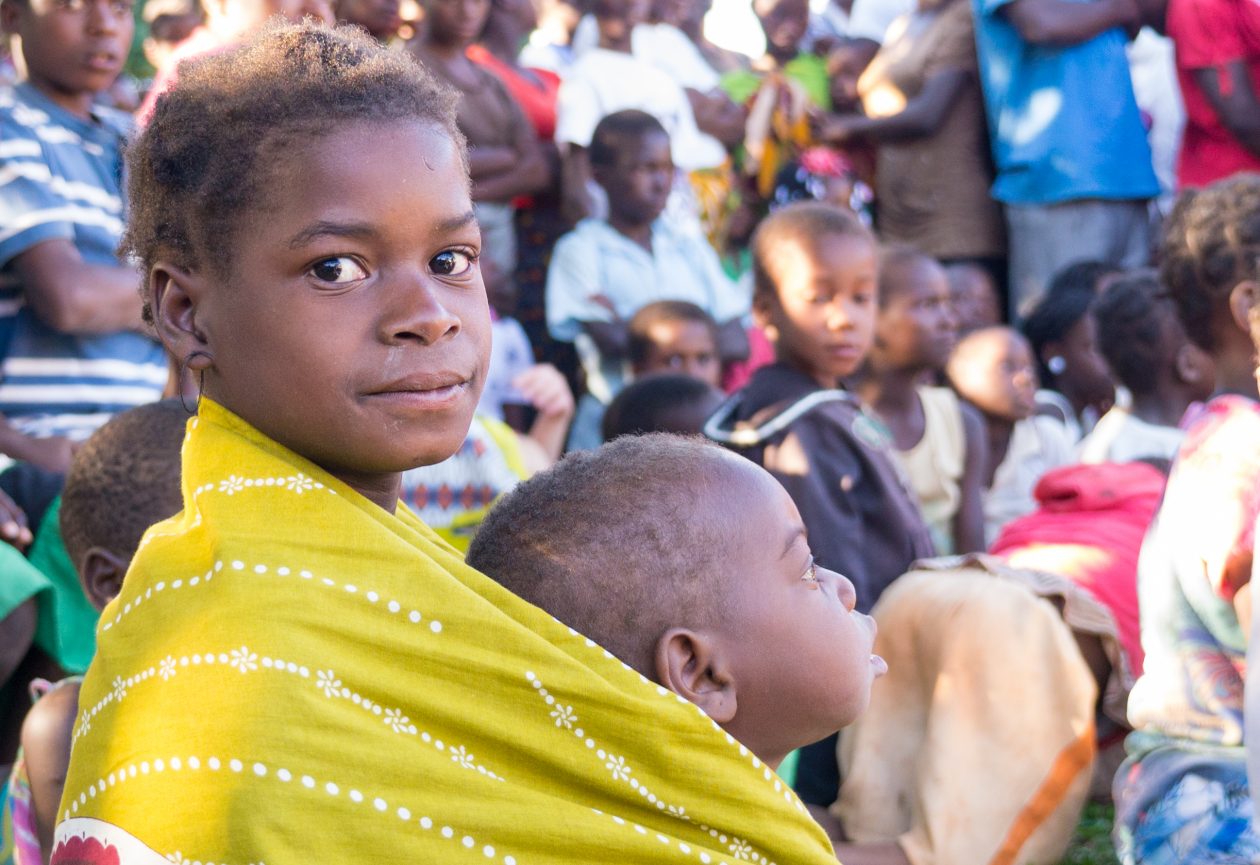September 21, 2014
I drove into town with a few of my employees and was invited by Jenny, one of my preschool teachers, to visit her home. I was thrilled for the opportunity, as I’d been wanting to see her home for quite some time. Since 2012, she had been building her family a proper house (with cement walls and a finished floor) and had been telling me about the progress every couple of weeks.
We neared the street where I thought she lived and we carried on. We passed house after house. They were older up-kept Portuguese homes with nice, large verandahs, running water, electricity, and yards with grassed lawns and proper metal clotheslines. I expected her to say ‘stop’ at any moment. She didn’t.
We continued to drive further into the village. The houses became smaller, were much closer together, and the road turned from pavement to dirt. I knew that the road, passable by a vehicle, would soon end. It was already bumpy and no longer resembled a road. It seemed more like a pathway for the torrents of rain that would come this November. Abruptly, Jenny announced that we would stop and walk from there.
We walked for a good, oh seven minutes. The ‘pathway’ that we walked on cut in and out of neighbors’ yards, under their plastic twine clotheslines, around their thatched-wall free standing bathrooms, over their bamboo mats (which serve as a seating area for eating) and through piles of mud and grass bricks made for future building structures.
Finally, when it seemed as though we were about to walk over the side of the hill, we came to Jenny’s home. She led me down a short, steep decline and we were there. Beaming from cheek to cheek, she spread wide open her arms and declared ‘This is my home.’ I could have cried at her joy. She was so very happy.
We walked into a pitch-black room with cool cement floors (I had taken off my shoes outside the door) and I listened as Jenny felt around for the light. Suddenly, we were bathed in bright white light. In the middle of the small room was a plastic green picnic chair. A short bamboo table with a television set on it was pushed up against a wall. Above the table, hanging from the wall, were a dry erase board (from our first graduating class in 2009), an old, faded felt board (also from the school) and a laminated picture of herself (taken by our organization). Aside from that, the room was completely bare.
There were three other rooms in the house. Two of them had lights. One was her bedroom that she shared with her daughter, the second being a bedroom for her son, and the third – a closet that held her pots, oil, beans, knife, cups, plates, ladle, soap and a large bucket for collecting water.
I complemented her immensely on her home. It was beautiful. One could tell that so much hard work had gone into it. Her front door had hinges and a lock, the inside walls were all plastered, the floor had been poured nicely, and she’d just had electricity put in. Too, she had a mattress in her room.
The location of the property was also nice. Just outside the front door was a community well where she could gather water to cook and wash clothes and just up the embankment was a second well that provided clean drinking water.
As I walked back to the vehicle with Jenny by my side (just in case I got lost), I felt lost for words, for thoughts. On one hand, I was so very proud of her. She had worked extremely hard to provide a home for her family and she had done well. She had saved for and built a home in three years. On the other hand, I thought of the immense wealth that I have and come from and the comforts of life that I am accustomed to – water from the tap that I can drink without boiling, a bathtub, a fan, a refrigerator, a driveway to my house …
I was baffled. I realized, once again, how different the lives of Mozambicans are from my own. Here I was, under the assumption that Jenny lived in one of those big, fancy houses, thinking that with her full-time wage she could afford such a home. I see their hardship every day in the village, but for some reason this little trek to Jenny’s home made it all the more real.
From me to you,
Julie

